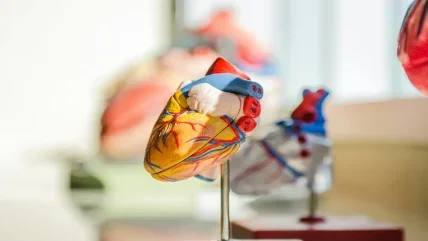
HeartBeam said that its artificial intelligence (AI) algorithm HeartBeam AI and proprietary vectorcardiography (VCG) technology have outperformed an expert panel of heart rhythm cardiologists in atrial flutter detection.
HeartBeam AI is a deep learning algorithm designed to detect abnormalities in heartbeat timing or patterns.
The VCG technology of HeartBeam gathers 3D signals of the electrical activity of the heart and converts them into a 12-lead electrocardiogram (ECG).
In the study, HeartBeam AI was tested on 173 vectorcardiograms (VCGs), single-lead ECGs, and 12-lead ECGs to detect atrial flutter.
Additionally, a panel of three electrophysiologists (EP panel) assessed the same set of ECGs for comparison.
The data was presented by Joshua Lampert, a cardiac electrophysiologist and assistant professor of medicine at the Mount Sinai Hospital in New York City.
According to the results, HeartBeam’s AI algorithm with VCG outperformed the EP panel reviewing single-lead ECGs with a statistically significant 40% improvement in the rate of atrial flutter detection.
It showed a 6% enhancement in atrial flutter detection by HeartBeam AI compared to an expert panel reviewing 12-lead ECGs.
In addition, HeartBeam AI combined with VCG achieved a sensitivity of 97.3%, surpassing the 91.1% sensitivity of the expert panel.
Furthermore, the technology demonstrated zero variability in atrial flutter detection compared to the EP panel.
HeartBeam CEO and founder Branislav Vajdic said: “The data is incredibly encouraging, showcasing the potential of our artificial intelligence program to improve diagnostic accuracy when a patient is outside of a medical facility.
“We’ll continue to build upon this strong foundation as we advance our AI programme to revolutionise cardiac care management in the future.”
HeartBeam’s 3D vectorelectrocardiography (VECG) technology captures cardiac signals in X, Y, and Z dimensions like VCG and generates a 12-lead ECG.
The cardiac care-focused medical technology company said that the technology will be initially used in the HeartBeam AIMIGo, which is a credit card-sized device for patient use at home or anywhere.
The device is presently under review by the US Food and Drug Administration (FDA).



